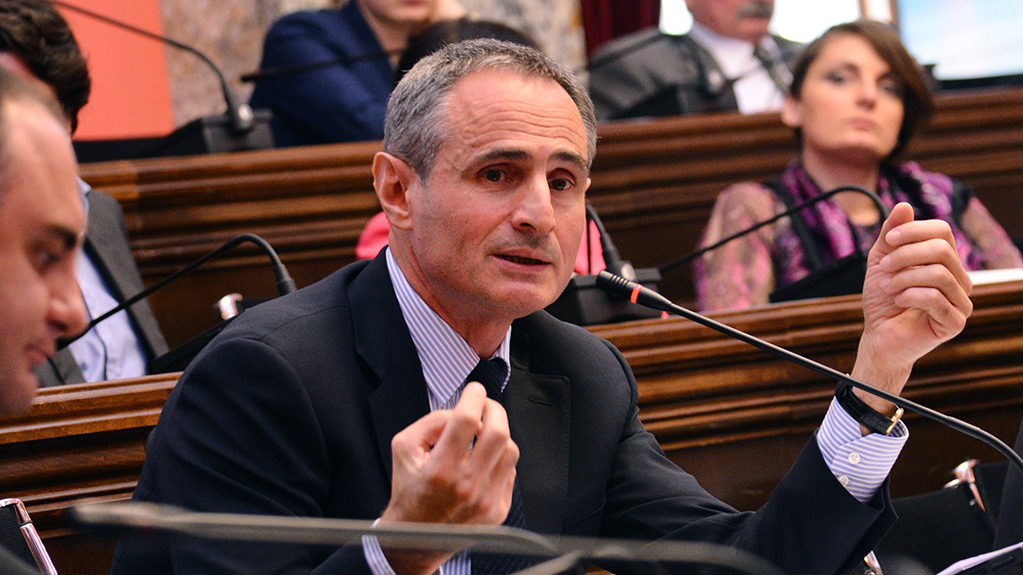MP Shalva Shavgulidze, during her speech in parliament, enumerated several reasons why the adoption of the Russian Law, once again initiated by "Georgian Dream," is unacceptable.
News
"The law stipulates that if a non-governmental or media organization derives over 20% of its annual income from foreign funding, it must register in a special registry designated for entities representing foreign interests. The term 'representing the interests of a foreign power' carries negative connotations, implying espionage or serving foreign interests within one's own country. Over 150 non-governmental organizations have already declared their refusal to be labeled as such. Therefore,
we proposed to the majority, the authors of the law, that since the sole criterion for designating organizations as representatives of foreign interests in our country is their funding source, let's name this registry the 'Register of Organizations Receiving Foreign Funding.' However, this proposal was also rejected.
Afterward, the law outlines that if an NGO or media outlet refuses to self-accuse itself of serving the interests of a foreign power, the Ministry of Justice will still monitor and proceed with registration, thereby attaching the aforementioned label and imposing a fine of 25,000 GEL. The Ministry of Justice of Georgia will set a 10-day deadline, and if the organization fails to acknowledge itself as a "foreign spy," fines of 20,000 will be imposed monthly, interspersed with fines of 10,000. Should the organization persist in not admitting to being an agent of a foreign power, the law mandates sanctions. These sanctions will cripple organizations, leading to their eventual dissolution.
The consequences of such a law are significant. Firstly, it leads to the stigmatization of non-governmental organizations and media outlets, reminiscent of Soviet-era repressions where individuals were declared enemies of the people without just cause. This law bears a striking resemblance in spirit to Russian legislation. This similarity is a key argument against its implementation.
What other outcome might result from this? The West warns us that such a law would exclude us from the European Union and NATO. The majority party also disregards these warnings. This law labels the West, our partners, and international organizations as foreign powers supposedly operating spy networks within our borders to serve their own interests. Yet, if we've been an independent country for 30 years, maintaining our statehood with their assistance, who halted the Russian army's advance toward Tbilisi? Wasn't it these very international organizations and partner countries of Western civilization?
This law will isolate us. We will be estranged from the civilized world and left alone to face the enemy, Russia," stated Shalva Shavgulidze.
He argues that the inclusion of the Russian Law's transitional provision renders it retroactive, a move that runs counter to the Constitution of Georgia.
"Responsibility for foreign funding extends to actions committed in 2023. The Constitution stipulates that no one can be held accountable for an act that was not deemed illegal at the time of its occurrence. This law cannot retroactively apply. It is a highly detrimental and flawed legislation. However, if it does not violate the Constitution, it should be enforced for contracts formed after its enactment, not those from last year," remarked Shavgulidze.
The parliament is currently deliberating the second reading of the Russian law and is expected to vote on it today. During the article discussions, the chairman of the legislative body, Shalva Papuashvili, refused to permit opposition MPs to ask questions or make statements; he silenced their microphones. Papuashvili then expelled Tinatin Bokuchava, Tamar Charkviani, Salome Samadashvili, and Giorgi Botkoveli from the meeting hall.
On April 3, 2024, "Georgian Dream" once again introduced the Russian law on so-called "foreign agents" in the parliament, which had been withdrawn a year ago due to extensive protests, with a promise to never reconsider it again.
The Russian Law mandates that independent media and non-governmental organizations, which receive grants from international funds and cannot be controlled by the government or affiliated groups, must register as foreign agents. Over 150 non-governmental and media organizations have declared that they will not register in the "defamation register" under any circumstances. On April 17, 83 deputies supported the Russian law in its first reading.















